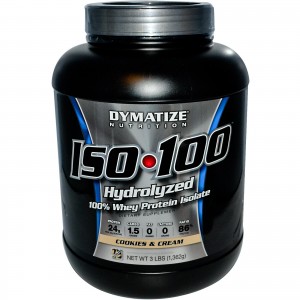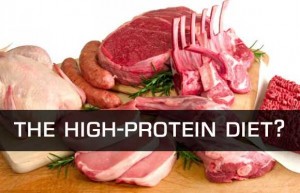by Jose Antonio PhD FNSCA FISSN CSCS. After reading this blog (5 Annoying and Dangerous Things that Happen When You Eat Way Too Much Protein) on EatClean.com (http://www.eatclean.com/scoops/eat-too-much-protein), it reminded me of my undergraduate education as a biology major at The American University (AU) in Washington D.C. Did you know that AU is the only university that was chartered by an act of Congress in the late 1800s? Enough of the useless trivia. Anyhow. I took a nutrition course at AU whereby my nutrition professor proclaimed that ‘eating too much protein is bad for your kidneys.’ I thought that’s odd. I looked in the book for references and alas, none were to be found. And if you look in other books, you’ll see the same statement yet again with no randomized controlled trials (RCTs) to support it. Let’s fast-forward to this journalist piece of silliness published on eatCLEAN.com. Perhaps the only thing that is annoying is how devoid this article is of scientific evidence. And as far as danger, well your nutritional IQ might drop 25 points if you actually believe the cow poop in this piece. The author lists these five things as the terrible 5: 1) Your breath smells funky. 2) Your mood takes a dive. 3) You might wreck your kidneys (egads this again!). 4) You’re plagued with GI issues. 5) You gain weight.
As far a s #1, I’d suggest brushing your teeth and using Scope. If you prefer ‘medicine-like’ breath, Listerine works quite fine. I guess the author would probably tell you to stay away from garlic and onions too. And the author makes the cardinal error of associating high protein diets with low carb consumption. There is absolutely no reason why the two even have to go
s #1, I’d suggest brushing your teeth and using Scope. If you prefer ‘medicine-like’ breath, Listerine works quite fine. I guess the author would probably tell you to stay away from garlic and onions too. And the author makes the cardinal error of associating high protein diets with low carb consumption. There is absolutely no reason why the two even have to go
together.
As far as #2, you know what puts you in a bad mood? Reading that article. Again, this author commits the cardinal sin of equating a high protein diet with one that is low in carbs. In fact, to quote from her stellar piece of writing: “Your brain needs carbs in all their sugary, starchy glory to stimulate the production of the mood-regulating hormone serotonin. Strip them from your diet, and you’re more likely to feel grouchy, irritable, or just blah.” Did she use the word ‘carbs’ in that sentence? Ok, that’s what I thought. Either way, a study published in PLoS One found that “Consumption of the high-protein vs. high-carbohydrate meal did not affect feelings of depression, tension, anger, anxiety.”[1] Issues related to mood are so complex that to assign ‘bad mood’ to eating insufficient carbs or too much protein is nonsensical. Heck, one of my teenage daughters changes her mood faster than the speed of an action potential.
#3. Oh boy. Where do we start with this piece of journalistic absurdity? After scouring the literature for over 40 years, there is no evidence that eating a high protein diet has any detrimental effects on renal function in otherwise healthy individuals. To wit:
- “In healthy obese individuals, a low-carbohydrate high-protein weight-loss diet over 2 years was not associated with noticeably harmful effects on GFR, albuminuria, or fluid and electrolyte balance compared with a low-fat diet.”[2]
- “To conclude, it appears that protein intake under 2. 8 g.kg does not impair renal function in well-trained athletes as indicated by the measures of renal function used in this study.”[3]
In fact, I just finished collecting preliminary data on high protein diets in which subjects consumed on average 3 g/kg/d of protein for a period of 4 months. This data is hot of the press, so if you’re reading this now, you’re privy to some super-cool science. You’ll notice (see the Table below) that not a g-damn thing changes. One of my subjects exceeds 6 grams per kg  daily. I think he eats a chicken a day. Ok, not really. But that’s a bucket of protein. And his renal function is normal. This harkens back to half a century ago when doctors believed that exercise was bad for the heart. Why? Because it ‘overworked’ the heart. Now that’s some funny shit. I keep hearing this refrain about renal function and protein. “What’s your body gonna do with all that urea (from protein degradation)?” The answer: your kidneys eliminate it. That’s their frickin’ job for chrissakes. Urea is also eliminated via the sweat glands. So using the sterling logic of so many who are uniformed, does that mean that your sweat glands are harmed because they have to ‘work’ so hard in eliminating urea? Puuullllleeeeassssse. (Note: the final data for the study mentioned in my lab will likely be published in the 1Q2016).
daily. I think he eats a chicken a day. Ok, not really. But that’s a bucket of protein. And his renal function is normal. This harkens back to half a century ago when doctors believed that exercise was bad for the heart. Why? Because it ‘overworked’ the heart. Now that’s some funny shit. I keep hearing this refrain about renal function and protein. “What’s your body gonna do with all that urea (from protein degradation)?” The answer: your kidneys eliminate it. That’s their frickin’ job for chrissakes. Urea is also eliminated via the sweat glands. So using the sterling logic of so many who are uniformed, does that mean that your sweat glands are harmed because they have to ‘work’ so hard in eliminating urea? Puuullllleeeeassssse. (Note: the final data for the study mentioned in my lab will likely be published in the 1Q2016).
High Protein Intakes in Resistance-Trained Men – Comprehensive Metabolic Panel
|
Baseline |
High Protein |
Reference Range |
|
| Glucose mg/dL |
84±12 |
85±19 |
65-99 |
| BUN mg/dL |
21±5 |
23±5 |
7-25 |
| Creatinine mg/dL |
1.1±0.2 |
1.1±0.2 |
0.60-1.35 |
| GFR ml/min/1.73m2 |
97±21 |
99±17 |
§ |
| BUN/Creatinine ratio |
19.3±5.7 |
21.0±2.2 |
6-22 |
| Sodium mmol/L |
139±2 |
138±1 |
135-146 |
| Potassium mmol/L |
4.3±0.4 |
4.3±0.2 |
3.5-5.3 |
| Chloride mmol/L |
103±2 |
102±3 |
98-110 |
| Carbon Dioxide mmol/L |
27±2 |
27±2 |
19-30 |
| Calcium mg/dl |
9.7±0.2 |
9.7±0.3 |
8.6-10.3 |
| Total Protein g/dL |
7.1±0.3 |
7.1±0.4 |
6.1-8.1 |
| Albumin g/dL |
4.7±0.2 |
4.6±0.2 |
3.6-5.1 |
| Globulin g/dL |
2.5±0.2 |
2.5±0.3 |
1.9-3.7 |
| Albumin/Globulin ratio |
1.9±0.2 |
1.9±0.2 |
1.0-2.5 |
| Total Bilirubin mg/dL |
0.6±0.3 |
0.8±0.3 |
0.2-1.2 |
| Alkaline Phosphatase U/L |
68±14 |
68±12 |
40-115 |
| AST U/L |
27±9 |
27±6 |
10-40 |
| ALT U/L |
28±19 |
28±10 |
9-46 |
Data are mean±SD. n=11 Legend: ALT – alanine transaminase; AST – aspartate transaminase; BUN – blood urea nitrogen; GFR – glomerular filtration rate (§ normal values: ≥60 ml/min/1.73m2). There were no differences between any of the groups.
#4 This article has enough straw(men) to fill a barn in Iowa. Again, the author makes the egregious error of equating high protein diets with those low in fiber. WTF. Here’s a piece of advice. For every piece of that juicy steak you consume, take a bite of broccoli. There is nothing difficult about eating a high protein diet and one that also has plenty of fiber. I have plenty of friends who can accomplish this seemingly impossible task. Try riding to the top floor of Sears Tower (now known as the Willis Tower) in Chicago with these fiber-loving, protein-eating peeps!
#5 You gain weight. No shit. If you lift weights and eat a bucketful of protein, you will likely gain lean body mass. But here’s the kicker. If all you did was overeat on protein (i.e., in our study subjects overfed on whey protein), you would likely lose weight. And not muscle mass my friend. You’d lose fat. In a study we presented at the 2015 ISSN Conference in Austin TX, we found that individuals who had the highest protein intakes (>3 grams per kg b.w. daily), also experienced a significant drop in % body fat. The NP (normal protein) group consumed a little over 2 grams per kg b.w. daily. And even that group lost a little bit of fat.
We even have data that if you just ate a LOT of protein (> 4 grams per kg b.w. daily) for 2 months (with no change in training), your body weight or body fat levels don’t even change.[4] Translation: it is extremely difficult to put on body fat by the mere overconsumption of dietary protein alone.
So what’s the moral of the story? Eat protein. Eat plenty of it. It’ll help you recover; it’ll improve body composition; and besides, sometimes you just need to eat a thick juicy steak.
BIO – Dr. Jose Antonio is the CEO of the ISSN (www.issn.net) and an Assistant Professor at Nova Southeastern University. His current research focus is on the effects of high protein diets on recreational bodybuilders and SUP (stand up paddlers). He probably eats more white rice than protein.
References
1. Lemmens SG, Born JM, Martens EA, Martens MJ, Westerterp-Plantenga MS: Influence of consumption of a high-protein vs. high-carbohydrate meal on the physiological cortisol and psychological mood response in men and women. PLoS One 2011, 6:e16826.
2. Friedman AN, Ogden LG, Foster GD, Klein S, Stein R, Miller B, Hill JO, Brill C, Bailer B, Rosenbaum DR, Wyatt HR: Comparative effects of low-carbohydrate high-protein versus low-fat diets on the kidney. Clin J Am Soc Nephrol 2012, 7:1103-1111.
3. Poortmans JR, Dellalieux O: Do regular high protein diets have potential health risks on kidney function in athletes? Int J Sport Nutr Exerc Metab 2000, 10:28-38.
4. Antonio J, Peacock CA, Ellerbroek A, Fromhoff B, Silver T: The effects of consuming a high protein diet (4.4 g/kg/d) on body composition in resistance-trained individuals. J Int Soc Sports Nutr 2014, 11:19.





